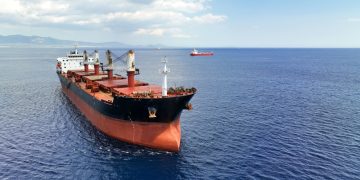ABS Chairman and CEO, Christopher J. Wiernicki urged Washington to not overlook shipping’s critical role in U.S. sustainable transport future.
The ABS Chairman in his speech at the Sustainable Freight Workshop at the White House, highlighted that many of the country’s sustainable transportation programs and initiatives tend to become mode-centric, but it is critically important to optimize the overall sustainable freight transportation across modes from origin to destination, which requires a system of systems focus.
Furthermore, Wiernicki emphasized the advantages of freight shipping and how it worked best by linking with other transportation sectors.
“Marine transportation has significantly lower emissions per ton-mile than other transportation modes, is the most cost-effective mode for freight, can move freight at a scale that other transportation modes cannot match, provides import and export options that other modes cannot reach, and often has less vulnerability to infrastructure damaging events such as natural disasters.” Wiernicki said.
The ABS Chairman continued by commenting that however, marine transportation can be slower and has fewer delivery location options, which requires close partnership with other modes for safe, efficient, cost-effective, and sustainable transportation of freight.
The U.S. Maritime Administration’s Office of Environment and Innovation has selected ABS to establish and operate the U.S. Center for Maritime Innovation under a five-year cooperative agreement. Authorized by the U.S. Congress, the Center is intended to support the adoption of clean energy on U.S. vessels through a wide-ranging program of research and development and training support.


































































